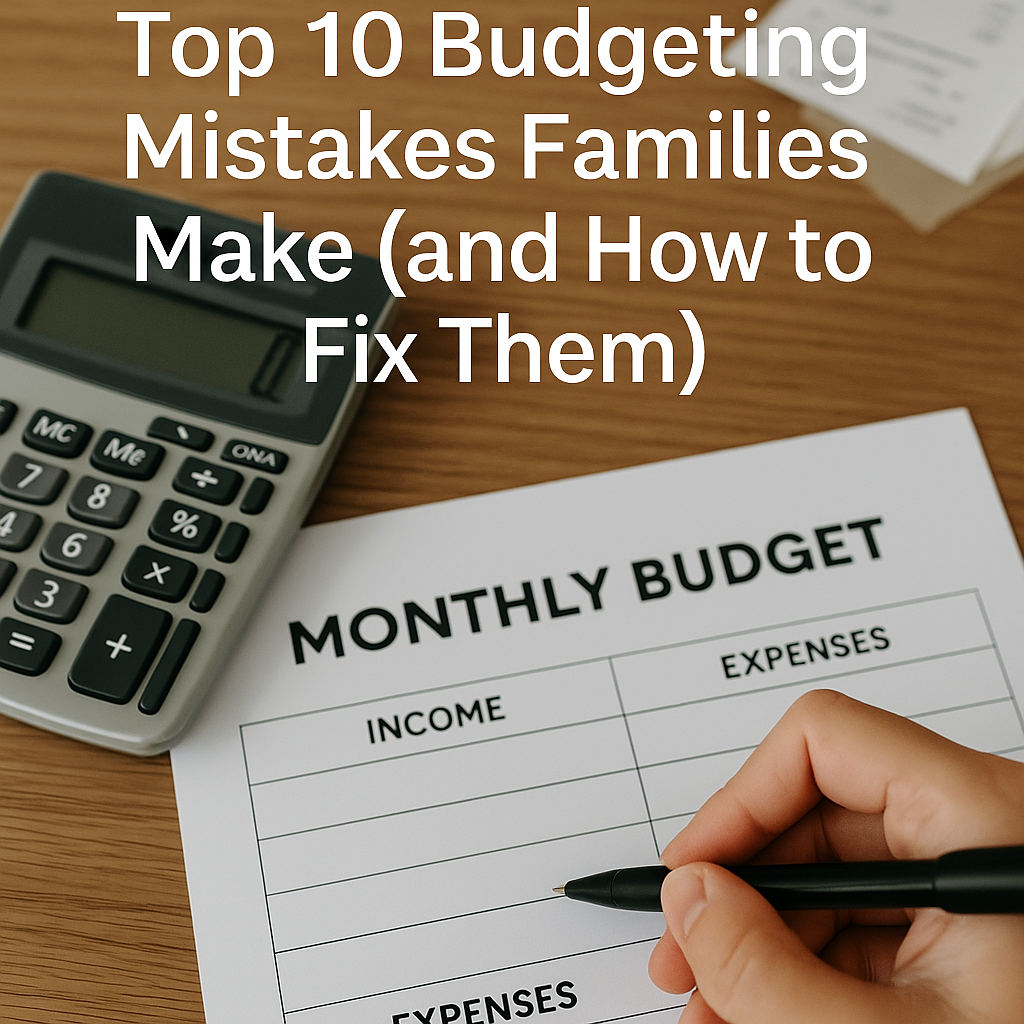Why Budgeting Mistakes Happen — Even With Good Intentions
Budgeting isn’t just about math — it’s about habits, communication, and consistency. Even when families have the best intentions, common budgeting mistakes can quietly undermine their financial progress.
The good news? Most budgeting pitfalls are easy to fix once you spot them. By adjusting your approach, you can take control of your money, reduce stress, and start reaching your financial goals faster.
Let’s look at the top 10 mistakes families make when budgeting — and how you can fix each one.
1. Not Tracking Where Your Money Goes
The mistake: Making a budget but not tracking your actual spending
The fix: Use an app or spreadsheet to track every expense. Compare actual vs. planned spending weekly. Tools like YNAB, Mint, or a simple notebook help you stay aware of your real habits.
2. Forgetting Irregular Expenses
The mistake: Only budgeting for monthly bills and forgetting occasional costs like car repairs, school fees, or holidays
The fix: Create sinking funds for these categories. Divide the expected cost over 12 months and save a little each month to prepare ahead.
3. Guessing Instead of Using Real Numbers
The mistake: Estimating income or expenses without checking your bank statements
The fix: Look at the last 2–3 months of actual data. Use real figures to make your budget accurate and achievable. Precision builds confidence.
4. Not Budgeting for Fun or Personal Spending
The mistake: Leaving no room for entertainment, hobbies, or personal treats
The fix: Include a realistic “fun money” category in your budget. Even $50/month per person can reduce the urge to overspend elsewhere and helps you stick to your plan.
5. Only Budgeting One Partner’s Income
The mistake: Building a budget based on one person’s income when both contribute
The fix: Combine income sources or at least budget collaboratively. Both partners should know where money is coming from and where it’s going.
6. Treating the Budget as Rigid
The mistake: Thinking your budget has to be perfect and never change
The fix: Allow flexibility. Life happens — adjust your budget monthly and don’t feel like a failure when changes are needed. A working budget evolves with you.
7. Forgetting to Save
The mistake: Budgeting only for bills and spending, leaving nothing for savings
The fix: Pay yourself first. Add savings as a fixed “expense” in your budget, even if it’s just $20 per month. Automate it for consistency.
8. Relying on Memory Instead of a System
The mistake: Trying to keep your budget “in your head” or on paper scraps
The fix: Use a consistent, accessible method — a budget app, shared Google Sheet, or printed planner. Involve your partner or older kids where appropriate.
9. Not Having a Goal
The mistake: Budgeting without a purpose or end goal
The fix: Set clear goals — paying off debt, saving for a trip, building an emergency fund. Goals give your budget meaning and keep motivation high.
10. Giving Up After One Bad Month
The mistake: Quitting the budget after overspending or hitting a setback
The fix: Treat budgeting like a skill — not something you either succeed or fail at. Each month is a chance to improve. Learn from the mistake, reset, and keep going.
Budgeting Isn’t About Perfection — It’s About Progress
Every family makes budgeting mistakes at some point. The key is recognizing them and taking small steps to correct course. With time and consistency, you’ll build a system that supports your values, your goals, and your peace of mind.
